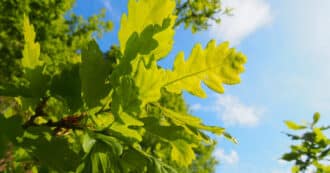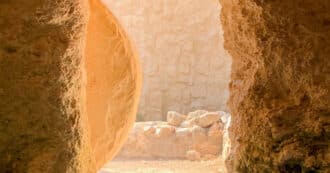The Rev. Dr. Leah D. Schade; leahschade@gmail.com
EcoPreacher 1-2-3 ideas for reading and preaching Deuteronomy 6:1-9 from a perspective of Earth care.
Deuteronomy 6:1-9 is one of the readings for the twenty-third Sunday after Pentecost if neither All Saints Day nor Reformation Sunday are observed.
Focus on vv. Deut. 6:3—5: 3Hear therefore, O Israel, and observe them diligently, so that it may go well with you, and so that you may multiply greatly in a land flowing with milk and honey, as the Lord, the God of your ancestors, has promised you. 4Hear, O Israel: The Lord is our God, the Lord alone. 5You shall love the Lord your God with all your heart, and with all your soul, and with all your might.
Eco-Exegesis
Eco-exegesis is a method of interpreting the biblical text through a green lens using the principles of ecological theology. For this passage, we turn to Eco Bible, a Jewish ecological commentary on the Hebrew texts.
Loving God means loving and protecting God’s Creation, including our fellow humans as well as animals, plants, and the very Earth itself. According to Eco Bible, “Rabbi Samson Raphael Hirsch (19th century) expands the obligation of loving one’s neighbor to considering the welfare of other living beings on the planet. Thus, the obligation can be seen as a basis for all environmental protection. Being a good neighbor means taking good care of our environment/life support system to ensure that others can also benefit in a sustainable way.”
One of the ways the Israelites honored this command in the “land flowing with milk and honey” was to follow a path of what today might be called the “sustainable path.” For example, the rabbinic sages instituted a ban on raising small livestock (goats and sheep) in the settled areas of Israel because they destroyed fields, gardens, and other green areas. So, even though these animals provided both milk and meat (which meant wealth for their owners), the people recognized the necessity to rule against inappropriate development. That which yields a profit for some damages others and causes extensive, long-term ecological harm. As Dr. Akiva Wolff writes, “From this verse, we also clearly see how the same material abundance that is considered a blessing can lead to forgetting the Creator who provided it. If we allow ourselves to be corrupted materially and spiritually by the wealth and excess we accumulate, the land will no longer tolerate us.”
1. Eco-Idea
The Eco-Idea is one succinct statement that tells us who God is and/or what God does in relation to Creation and how we should respond as people of faith. The Eco-Idea for this sermon is:
Honoring and loving God means honoring, protecting, and loving God’s Creation so that the land and livelihoods are sustained for the long term instead of being sacrificed for short-term gain.
2. Eco-Questions
Eco-Questions are what we can ask to help a congregation draw out the implications of the Eco-Exegesis and Eco-Idea.
- What are examples of sustainable growth happening in our community? For example, where do we see environmental “buffer zones” that prevent damage from pollution, bad odors, dust, smoke, and loud noises? How do they parallel the kind of biblical restraint that the ancient Jewish sages instituted for their community?
- Where do we see restoration of local wetlands that help to filter toxins and produce fresh water for ecosystems? What can they teach us about long-term sustainability as an act of loving God and loving neighbor?
3. Eco-Actions
Eco-Actions are ways that a congregation might respond to the Eco-Idea and Eco-Questions. One of these possibilities may have salience for your preaching context.
- Plan an environmental advocacy day. Have a team research what environmental protection legislation is being considered at the local, state, or national letter. Print out letters telling your elected officials that protecting God’s Creation is important to your faith and ask them to support the legislation and invite congregants to sign the letters. Then send them to these leaders on behalf of your congregation.
- Install rain barrels and/or plant a rain garden. Water run-off is a serious problem in many communities because it leads to increased flooding and pollution. Churches can help mitigate water run-off by installing rain barrels and/or planting a rain garden. Rain barrels minimize run-off from the building and the water can be used for plantings around the building. Rain gardens take planning and physical labor, but can significantly reduce water run-off, help to filter water, and are sources of beauty for the community.
- Invite a financial expert to help the church consider investing in sustainable businesses. Churches often invest in funds to sustain the long-term ministry of the church. But if those investments are based in industries that do harm to people and planet, the church is unwittingly profiting from suffering. A financial expert specializing in sustainable and do-no-harm investments can help the leadership explore options for long-term financial stability that supports the health and well-being of the Earth and communities.
1Hirsch, commentary on Leviticus 19:18.
2Eco Bible: Volume Two: An Ecological Commentary on Leviticus, Numbers, and Deuteronomy, edited by Rabbi Yonatan Neril and Rabbi Leo Dee, The Interfaith Center for Sustainable Development, 2021.
* Featured image source





